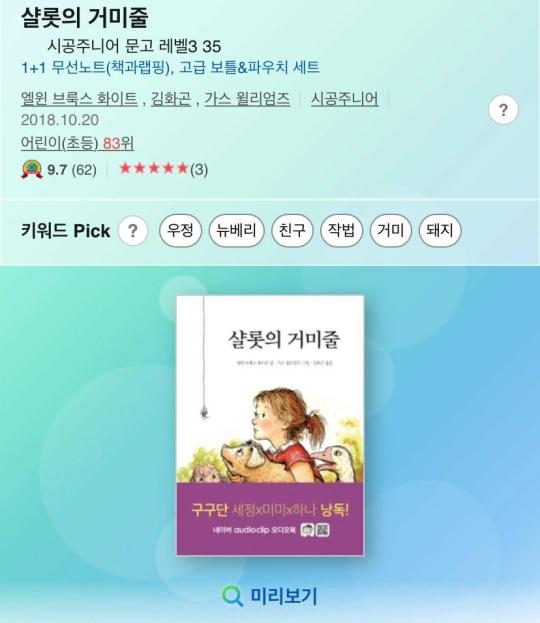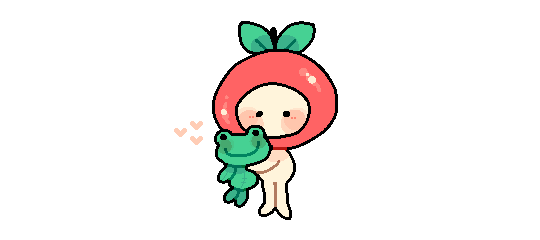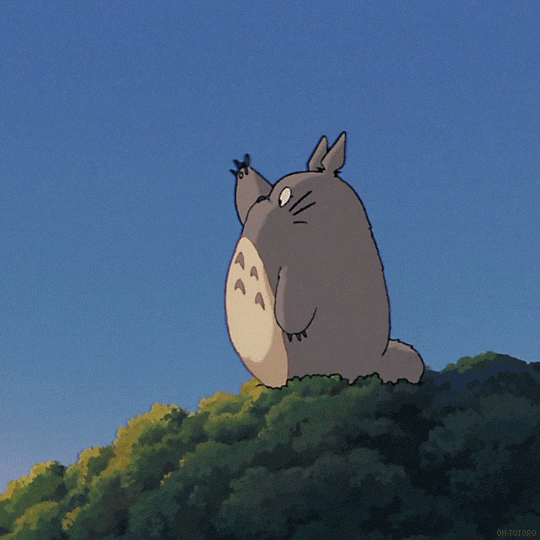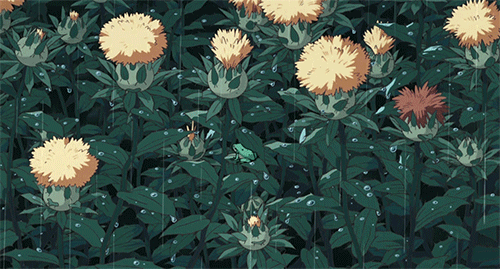Text
🧸 It’s been 1.5 years 🧸

Hello… I do not know where to start and what would be fitting to say. As some of you may have noticed, my last post is from the end of August 2020, during the midst of the p-word. I have opened this blog on multiple occasions since then and have contemplated posting something new, helping you staying motivated to strive towards a better version of yourselves by expanding and broadening your knowledge.
♡
The thing is, though, that every time I began to think about what to write, I found myself feeling drained and overwhelmed. My follower count was at 3100 and I had found such a sweet, supportive community on langblr — until the panini hit. My mental health deteriorated and I strove away from feeding my hunger for learning new things.
Additionally to that, it was my last year of high school; stressing about my graduation in this situation really sucked the last ounce of energy straight out of my bones. I stopped journaling, stopped learning Korean, stoppen writing essays, stopped dancing etc. etc. Instead, I fled to fantastic worlds and immersed myself in books.
At this point, I do not know where to pick up old habits again, because I feel that through all the events since the start of 2020, I forgot how to be myself. I lost so many passions along the way and lately, that has been hard on me and my health.
It is just the beginning of this year, 2022, that I began rediscovering myself through studying new things, picking up sports again (still a long way to go…) and so on.
As sad as this is, I must admit that I forgot what feels like 80% of the things I know (now ‚knew‘, I figure) about Korean. When I scrolled through my old blogposts yesterday morning, I felt some sort of spark ignited; I want to continue my Korean journey — yet it feels like I’m swimming in a vastly open sea with nothing to hold onto in sight. My perfectionism keeps me from admitting to you, that my posts might lack quality (?) as I have to refresh all the things I once learned. But honestly, I believe that is part of the journey which I am willing to take into account in order for myself to grow as an individual.
♡
This post is pretty lengthy so I want to thank you who read this all and I ask for your understanding, too. I will try my very best to be there for you, so that we can tackle this journey together.
I appreciate you all so much. 화이팅!
#i'm back y'all#korean language#korean#learning korean#studyblr#langblr#language study#hanguk#language learning#academia#한글#한국어 배우기#한국말#한국어 공부하기
8 notes
·
View notes
Note
Reblogging because I found a great children's book in a antique book shop! It is written by a professor from a German University, I believe. Therefore it is specifically written for and aimed at Korean learners 🌾
얀, 벤, 막스 - 삼 형제의 모험
(Ian, Ben, Max - The Adventures of Three Brothers)

( @kpoploser3 tagging you because you might be interested 🥰)
can you recommend some good korean children's books? i would like about 5th grade level (about 11 years old) because that's the level my korean is at.
Hello :)
I myself have struggled finding good children's books in Korean, so I asked my language exchange partner and she recommended me "Charlotte's Web / 샬롯의 거미줄".
'I think this one is already famous book all over the world. So it's not difficult to understand the story! When I was young I read itㅎㅎ', she said.
I sadly haven't read it yet (as I mostly read web comics and postype stories instead of books) (and it's super hard to find physical copies of Korean books here :/ ). I hope you'll have fun with this one and I apologize for not being able to give you a more useful answer 👉🏻👈🏻🥺
If you want more book recommendations I can make sure to ask around for you !!
Edit: This!

#korean language#korean#learning korean#studyblr#langblr#한국#한국어#korean grammar#study korean#study motivation#koreanblr#한글#한국말#한국어배우기#korean book#langblr ask
100 notes
·
View notes
Text
🍭 Update - What Do You Want to Know? 🍭

Hello there! I am back after a way too long hiatus. I genuinely missed updating this blog, but I have no idea what to post... Recently, studying Korean was not my top priority so I kind of am stuck where I was 2 months ago.
Now getting to the important part:
Do you have any questions you'd like me to answer? Any grammar you don't understand (yet)? Vocabulary request for certain world fields? Anything else Korean-related?
If so, let me know down below or send me asks or a direct message ^^ I am excited to get back to posting

#korean language#korean#learning korean#studyblr#langblr#korea#south korea#корея#한국#한국어 배우기#한국말#한국어#vocab korean#korean vocabulary#vocabulary
22 notes
·
View notes
Note
can you recommend some good korean children's books? i would like about 5th grade level (about 11 years old) because that's the level my korean is at.
Hello :)
I myself have struggled finding good children's books in Korean, so I asked my language exchange partner and she recommended me "Charlotte's Web / 샬롯의 거미줄".
'I think this one is already famous book all over the world. So it's not difficult to understand the story! When I was young I read itㅎㅎ', she said.
I sadly haven't read it yet (as I mostly read web comics and postype stories instead of books) (and it's super hard to find physical copies of Korean books here :/ ). I hope you'll have fun with this one and I apologize for not being able to give you a more useful answer 👉🏻👈🏻🥺
If you want more book recommendations I can make sure to ask around for you !!
Edit: This!

#korean language#korean#learning korean#studyblr#langblr#한국#한국어#korean grammar#study korean#study motivation
100 notes
·
View notes
Note
나는 케이크를 만들고 싶어요. 그리고 먹고 싶어요.
만들어요! 진짜 해야되는데 ~
그럼... 대답을 늦게 해서 아마도 벌써 만듦...? 맛있었죠? 맛있었으면 좋겠네요 ~
25 notes
·
View notes
Text
Masterlist

I decided to create a master list of all my blog posts. I only included the ones I wrote myself, you won’t find any reblogged posts here :)
GETTING STARTED
# How To Start Studying Korean
# Study Technique (Ask)
# Study Notebook (Ask)
MISCELLANEOUS
# Introduction
# The Issue With Calling People Koreaboo - A Short Essay
# Life Update (October 2019)
# 5 Things That Make Me Happy
GRAMMAR
# Important Grammar - Ending Consonants - 받침
# Beginner Grammar - To Have To Do Sth./Should Do Sth. -~아/어/여야 하다/되다
# Beginner Grammar - Nominalisation -는 것 & -기 & -(으)ㅁ
# Beginner Grammar - About Sth./Concerning Sth. -에 대해(서) & -에 관해(서)
# Beginner Grammar - If/When -(으)면 & -(으)ㄹ 때
# Intermediate Grammar - Speaker’s Assumption -(으)ㄹ 텐데
# Confusing Grammar 1 - Shall We…?/Doubts/Asking Oneself/Wondering -(으)ㄹ까(요)?
# Confusing Grammar 2 - Some-(one/time/where) -ㄴ가
# Confusing Grammar - If/When -(으)면 & - (으)ㄹ 때
# Confusing Grammar - Usage of 보다 in BTS and TXT song (Ask)
VOCABULARY
# Adverbs of Frequency
# Vocabulary - Nature
# Vocabulary - Halloween
# Random Vocabulary 1
#korean#koreanstudyblr#studying Korean#korean language#langblr#masterlist#language masterlist#korean masterlist#vocabulary#grammar#korean vocabulary#korean grammar#korea
374 notes
·
View notes
Note
Hey I have a question about the use of 봐, -In BTS's Zero o' Clock there is a line: 어지러운 밤 문득 시곌 봐, which means "look at the spinning night", right? -In 20cm by TXT the line "발을 맞춰 자라났나 봐" means must have grown in sync. so here 봐 doesn't mean look. I'm a bit confused about the use of 봐 now...
Hello Anon :) first of all, thank you for asking. I'll try my best to explain! [Update May 12:... I kind of forgot this was in my drafts, so that's why I answering your question this late...I deeply apologise :( ]

Your first example was the lyrics from BTS' Zero o'clock.
"어지러운 밤 문득 시곌 봐."
Let's break this sentence down first:
어지럽다 = dizzy (of [complex] emotions)
-> something is not solved and makes you 'tired'
밤 = night
문득 = suddenly
-> happens impulsively; unexpectedly
시곌 = 시계 + ~(르)ㄹ [object marker] = the clock
-> It is very common in Korean to contract words with the particles. An easy example would be 나는 changing to 난.
봐 = 보다 + ~아/어/여 [present tense] = to look at (sth.)
The entire lyric translated would be something along the lines of:
"In the dizzy/spinning night I suddenly glanced at the clock."
As you can see, 봐 means 'to see/lok/...' in this case :)

Now on to the second lyric by TXT's song:
"발을 맞춰 자라났나 봐"
The whole lyrics during this part goes
"커진 키와 널 향한 맘 / 발을 맞춰 자라났나 봐"
I won't explain the first part since it wasn't part of your question and we want to focus on the meaning of 보다 in the second sentence. But I think it's important to mention it nonetheless, since there is no subject in the second sentence: "발을 맞춰 자라났나 봐"
blue = idiomatic expression
orange = predicate/verb
pink = grammar pattern/sentence ending
See? No subject to be found. But you can find it in the first part, which translates to:
"My height and my feelings towards you that have grown"
There's the subject(s) :)
Now, let's get to the breaking-down part:
발을 맞춰 = 발(을) 맞추다 = "the feet match"
-> This sounds silly, doesn't it? That's because it's an expression used to say 'to be in sync' or 'to be synchronized'
자라났~ = 자라나다 + ~ 았다 [past tense] = to grow (up)
~나 봐 = ~나 보다 = to assume sth./ '(it) seems to...'/'(I) think that...'
The whole sentence reads:
"They (my height and my feelings) must have grown in sync." / "It seems that they have grown in sync."
-> In this case 보다 is part of a grammar pattern which is quite frequently used in Korean to indicate the speakers assumption! So you were totally right: 보다 doesn't always mean "to see", but has several other meanings as well. 보다 almost acts like an auxiliary verb :)
This is the end of this blog >< I am so sorry that it turned out to be sooooo long, but I wanted to provide you a full explanation, a vocabulary list and some help with understanding sentence structure better 🥰🌱💌 I hope this was helpful!
Sources:
@/tearsbypast on IG (a huge thanks goes out 🥺 I was so confused at first lmao) | Naver Dictionary | HiNative | Korean.Go | iTalki | azlyrics
Question: Would you like me to potentially cover grammar patterns with 보다 in a collective, special post? (I don't really know how much there are, so I'll have to make some research, but if it's a few and ya'll want me to, I will definitely try to cover this topic on my blog in the future! 🥺
#korean language#korean#learning korean#studyblr#langblr#한국#한국어#korean grammar#study korean#study motivation#south korea#koreanstudyblr#kpop#한국어 문법#문법
48 notes
·
View notes
Text
Masterlist

I decided to create a master list of all my blog posts. I only included the ones I wrote myself, you won’t find any reblogged posts here :)
GETTING STARTED
# How To Start Studying Korean
# Study Technique (Ask)
# Study Notebook (Ask)
MISCELLANEOUS
# Introduction
# The Issue With Calling People Koreaboo - A Short Essay
# Life Update (October 2019)
# 5 Things That Make Me Happy
# Where I have been (2022)
GRAMMAR
# Important Grammar - Ending Consonants - 받침
# Beginner Grammar - To Have To Do Sth./Should Do Sth. -~아/어/여야 하다/되다
# Beginner Grammar - Nominalisation -는 것 & -기 & -(으)ㅁ
# Beginner Grammar - About Sth./Concerning Sth. -에 대해(서) & -에 관해(서)
# Beginner Grammar - If/When -(으)면 & -(으)ㄹ 때
# Intermediate Grammar - Speaker’s Assumption -(으)ㄹ 텐데
# Confusing Grammar 1 - Shall We...?/Doubts/Asking Oneself/Wondering -(으)ㄹ까(요)?
# Confusing Grammar 2 - Some-(one/time/where) -ㄴ가
# Confusing Grammar - If/When -(으)면 & - (으)ㄹ 때
# Confusing Grammar - Usage of 보다 in BTS and TXT song (Ask)
VOCABULARY
# Adverbs of Frequency
# Vocabulary - Nature
# Vocabulary - Halloween
# Random Vocabulary 1
374 notes
·
View notes
Note
Any textbook recommendation for beginners? And maybe an online vocabulary source please?😍🙈

Hello anon! <3
Sadly I can't help you out with textbooks since I don't use any myself - and never have. :/ Maybe some of my followers can help you out in the comments ~
And as for vocabulary sources: I began learning vocabulary on howtostudykorean.com. It is very convenient, especially for beginners, because there is an audio file for almost every vocabulary on there! So I would definetly recommend that 10/10.
Then for some time I used Quizlet quite a lot. If you don't know what Quizlet is: It's basically an app (website does also exist) on which one can create flashcard sets oneself or save and use other users' sets! It's super fun and easy to learn vocabulary on Quizlet - and it's for free :)
Another important source for me is Naver Dictionary. It's the most reliable Eng-Kor dictionary out there as it is from the Korean giant Naver itself ! (fun fact - if you didn't know already: Naver is like our Google.) It's super handy for people studying Korean because they have an entire sectiom dedicated to us! With daily phrases and videos etc. I don't know much about the app since I only use the website but I have seen quite a few tutorials on YouTube, so check them out if you're interested !
And my last recommendation (this one is for when you want to expand your vocabulary): Naver Webtoon. It's available on all types of phones as far as I know and you can download episodes for 48h without having to create a Naver account! This one is my most used application when I want to learn new words. It's especially useful because the Korean language has a lot of words for the same thing - usage depending on your partner, their status and whether it is written or spoken language. So by reading even 5 sentences a day, you'll be able to pick up a lot of words used in natural conversations. (Slang is also used quite a lot in some Webtoons; that's an extra perk :) )
I really hope I was able to help you out at least a bit 💌🌼
#korean language#korean#learning korean#studyblr#langblr#한국#한국어#korean grammar#study korean#study motivation
30 notes
·
View notes
Text
This reblog is in German :)
@hawakushalffullcupofcoffee <3
OMG, ich bin jetzt erst über diesen Post gestolpert. Erstmal ein riesen Dankeschön, dass ich jemanden inspiriert bzw. angeregt habe, sich ebenfalls zu diesem Thema zu äußern ! Das ist mir eine ausgesprochen große Ehre <3
Das meiste wurde bereits schon gesagt, daher entschuldige ich mich im Vorraus für inhaltliche Wiederholungen.
Disclaimer: Ich bin etwas....sehr abgeschweift :")
Wie auch Du (Ich hoffe es stört *dich?* nicht, dass ich duze...ich finde es eigenartig, sowohl Sie als auch Du auf Tumblr zu benutzen, vor allem da ich nie auf Deutsch auf dieser Plattform kommuniziere :") ) es in deinem Blogpost erwähnt hast, so ist auch in meinem Fall Englisch erst meine dritte Sprache. Und ich würde lügen, wenn ich behauptete, dass ich mich nicht für die Kultur und Weiteres interessiert. Ich bin passioniert, wenn es darum geht, neue Dinge über die Gesellschaftsstrukturen, kulturellen Unterschiede usw. von Ländern mit englischsprachiger Population zu erlernen.
Auf YouTube schaue ich eigentlich ausschließlich amerikanische - ab und zu auch britische oder australische - YouTuber an. Das reicht von Serien zu Sketches zu Filmen, ja sogar bis zu mehrteiligen englischsprachigen Dokumentationen. Derselbe Fall tritt auch bei Social Media ein: Meine Community besteht - bis auf ein paar Ausnahmen - vollständig aus Menschen aus den USA.
Ich will auch nicht bestreiten, dass ich K-Pop nicht mag. Aber das rechtfertigt niemanden dazu, mich als 'K-Pop Fanatiker' oder gar 'Koreaboo' zu betiteln. Sicherlich gibt es mehr als genug ... wollen wir sagen "eigenartige" Fans. Doch legitimiert das einen Außenstehenden, mich so zu benennen - ja fast schon zu beleidigen?
Projezieren wir mein Online-Verhalten (unter Betrachtung des Aspekts, dass ich mich online hauptsächlich nur mit englischsprachigen Inhalten beschäftige) auf einen, wie man so schön sagen würde, 'Koreaboo':
Da bin ich also, wissensdurstig und scharf drauf, nicht nur meine Sprachfähigkeit auf dem Feld Koreanisch zu verbessern, sondern auch die Menschen, das Volk, dass unmittelbar im Geschehen in Korea drin ist, zu verstehen. Ich möchte mich hineinversetzen können. Ich möchte Standards, Lebensansichten und die Mentalität der Menschen nachvollziehen können.
Was tu' ich nun, um diesen Wünschen nachzugehen? Ich fokussiere mich auf koreanischsprachige Medien: Filme, Serien, YouTuber (was durchaus ein Medium ist, von dem wir dankbar sein können, dass es existiert; wir sehen 'ungefiltertes', alltägliches und natürliches Sprachverhalten), Podcasts, Texte - und im besten Fall koreanische Musik, auch K-Pop. Dabei glaube ich nichteinmal, dass man K-Pop mögen muss. Man könnte sich aber zumindest damit ganz kurz auseinandergesetzt haben, da es einen weiteren Einblick in die Kultur und auch Popkultur gibt.
Aber tue ich all dies - 'reduziere' mediale Inhalte, die ich konsumiere, auf eine Sprache, Koreanisch - dann bin ich ... ein Koreaboo.
Erzählte ich einer x-beliebigen Person, dass ich nur YouTuber schaue, nur Leuten folge, die Amerikaner/Briten sind, ist das okay. Wenn nicht sogar beinahe fantastisch. "Es ist schön zu sehen, dass du so ehrgeizig bist!"
Stelle ich der potentiell selben Person genau das gleiche 'Modell' vor, ändere aber die 'Zielsprache' zu Koreanisch, ist das nicht mehr so okay. Wenn nicht sogar total herablassend.
Mir stellt sich die Frage, wieso Menschen überhaupt so frei mit dem Begriff umgehen. Besonders, wenn wir berücksichtigen wollen, dass es sich bei einem hohen Prozentsatz aller, die andere als 'Koreaboos' abgestempelt haben, nicht einmal um Leute handelt, die auch dem ost-asiatischen Raum stammen.
ー fin.
#koreastic vs. #koreaboo - Teil I
Inspiriert von hangup-berry - antworte / begleite ich ihre grundsätzliche Aussage bezüglich der Intoleranz Korea-Interessierten gegenüber.
Ich selbst genieße die korenische Sprache in vollen Zügen und freue micih jedesmal aufs Neue Duolingo zu öffnen und wieder eine Vokabel mehr zu lernen, oder meine eigenen Unterlagen durchzusehen. Daher werde ich auch in der nächsten Zeit meine eigenen Lernerfahrungen teilen, auf das noch mehr Leute sich der wunderschönen Sprache widmen oder sich nicht scheuen es zu zeigen.
Begriffe wie Hallyu und damit einhergehender K-Pop und K-Drama haben eine eher possierliche Konnotation als dass es wirklich geachtet wird. Was dabei - wie hanguk - berry bereits schön erklärt hat - außer Acht gelassen wird ist, dass ein reines Interesse an der Kultur und der Gesellschaft, an politischen oder rechtlichen Themen des Landes als schlichtweg unmöglich gesehen wird. “Ich interessiere mich für das Land und die Kultur” ist gleichzusetzen mit: Du bist K-Pop Fanatiker.
Dieses soziologische Phänomen findet man natürlich nicht nur bezogen auf die koreanische Kultur und Sprache. Die Thematik des Schubladendenkens / der Vorurteile die der Mensch unbekannten Dingen häufig gegenüber hegt, ist auf alle erdenklichen Ebenen des Lebens zu übertragen.
So, im Kurzen - als ersten Teil - meine Gedanken zu dem Thema. Wie schon erwähnt inspiriert von Hanguk-Berry und der Ganzen Thematik bzgl. “Koreaboo”. In den folgenden Tagen gibt es noch einen zweiten ausführlicheren Teil dazu. Aber das soweit erstmal.
Also :) Happy Studying and keepyourcalm ;)
What is your opinion and how did you experience this topic in the past? Or have you experienced intolerance concerning your interests in other fields? Just comment; I`d love to hear your thoughts!
Greetings hawakushalffullcupofcoffee
9 notes
·
View notes
Note
Pass the happy! When you receive this, list 5 things that make you happy and send this to 10 of the most recent people in your notifications! ✨
This is a cute idea 🎐🎀

Ballet + classical music
My family
Learning new things/Acquiring new skills
K-Pop/Music in general
A good book

#korean language#studyblr#langblr#happy#happiness#gratitude#TMI#today's tmi#5 things#things that make me happy#ask
6 notes
·
View notes
Note
Could you explain when to use '-으면' vs. '-면' I know it's simple but I can't seem to find it
🍋 If/When - ~(으)면/~(으)ㄹ 때 🍋
I included -(으)ㄹ 때 in this lesson as well, since it might cause some confusion ^^

🥞 What does -(으)면 mean?
This one's a simple one.
It translates to 'If' or - in some cases - 'When'.
-(으)면
Do not confuse this with -(으)ㄹ 때, which i will touch on a bit later on in this post.
🥞 V/Adj. + -(으)면
Simply add -면 to the stem of a verb/adjective, if it ends with a vowel.
Ex.: 하다 (to do) -> 하 + 면 -> 하면 = if I/you/etc. do(es)
Add -으면 to the stem of a verb/adjective, if it ends with a consonant.
Ex.: 읽다 (to read) -> 읽 + 으 + 면 -> 읽으면 = if I/you/etc. read(s)
🥞 Some Examples
건강한 음식을 먹으면 더 행복할 거에요.
-> If you eat healthy food you will be happier.
그녀 보면 기쁘다.
-> If/When I see her I am joyful.

🍞 What does -(으)ㄹ 때 mean?
This one means "when".
🍞 V/Adj. + -(으)ㄹ 때
You add -�� 때 to the stem of a verb/adjective when it ends with a consonant.
Ex.: 젊다 (to be young) -> 젊 + 을 때 -> 젊을 때 = when I/you/etc. was young
When the verb/adjective ends with a vowel you have to add -ㄹ 때 to its stem.
Ex.: 만나다 (to meet) -> 만나 + ㄹ 때 -> 만날 때 = when I/you/etc. met sb./sth.
🍞 Some Examples
제가 잚을 때 순직했다.
-> When I was young I was naive.
당신이 처음으로 만날 때 너무 예쁘고 생각한다.
-> When I met you for the first time I thought you were really pretty.
성인 될 때 의사는 이고 싶다.
-> When I am an adult I want to be a doctor.

🥐 What is the difference?
Although it might seem confusing at first, the difference is quite clear and easy to understand:
-(으)면 is used in conditional sentences. (If A happens, do B./ If A happens, B happens.)
-(으)ㄹ 때 is used in temporal sentences. (When A happened/will happen, B happens.)
I hope this helped you in one way or another! Thank you for requesting♡
#korean language#korean#learning korean#studyblr#langblr#한국#한국어#korean grammar#study korean#study motivation#100 days of productivity#productivity#linguistics#korea#south korea#kpop#korean culture#언어#한국드라마#한국말#한글#한국어 문법#문법#grammar#foreign languages#language learning#languages#language
95 notes
·
View notes
Text
Reblogging again; let me know which ones you're curious about!🎀
• -에 대해(서) explained here
List of MUST-KNOW Korean grammar

1. N에 대해(서) - about N
2. N(으)로 인해(서) - as a result of N
3. N에도 불구하고 - in spite of N
4. N에 비해(서) - compared to N
5. N에 비하면 - compared to N
6. N에 반해(서) - in contrast with N
7/9. N에 따라(서)(의해서)- in accordance with N
8. N에 따르면(의하면) - according to N
10. N와/과 달리 - unlike N
#korean drama#korean language#koreanstudyblr#learning korean#korean#korea#south korea#vocabulary korean#korean vocab#words#grammar#langblr#studyblr#korean grammar#한국#한국어#한국어배우기#한글#문법
754 notes
·
View notes
Text
🎐concerning something - ~에 대해(서) and ~에 관해(서)🎐
Requested by @spiderlilysss . Thank you so much for requesting! I hope the following explanation can help you.♡

🎨 How to translate -에 대해 or -에 대해서 when you stumble across that pattern?
‘-에 대해(서)’ means 'about' or 'concerning'.
It is used when you want to talk about something relating to a specific topic (e.g. I have been thinking a lot about that book recently -> 요즘은 그 책(n., the book)에 대해 많이 생각해요.)
🎨 How to use -에 대해(서) in a sentence?
Just like I mentioned before, the speaker uses -에 대해(서) to talk about something.
To use it within a sentence you only have to add '-에 대해(서)' to the topic when it is followed by a verb, and ‘-에 대한’ when it is followed by nouns.
Ex.:
그 책은 무엇에 대한 책이에요? (= What is that book about?)
🎨 What is the difference between -에 대해(서) and -에 관해(서)?
There is none. Both particles are 100% interchangeable.
Ex.: ('What do you think about me?')
저에 대해서 어떻게 생각해요?
저에 관해서 어떻게 생각해요?

Sources: koreantutors | koreanclass101 Forum
a/n: I hope this was helpful! I am taking requests currently so feel free to drop something in my inbox ♡
#korean language#korean#learning korean#studyblr#langblr#한국#한국어#study korean#study motivation#korean grammar#100 days of productivity#korea#south korea#kpop#studying languages#studying korean#한국드라마#한국말#한글#한국어공부#grammar#korean grammar lesson
43 notes
·
View notes
Text
Reblogging for all my new followers because my account kind of blew up😳💝
Hello🌙 안녕하세요~( ꈍᴗꈍ)

so, I have decided to open a korean-studyblr, too. yay! actually, this'd be my first 'real' Tumblr blog🍃
Reasons are the lack of motivation to study and a GOAL to achieve (basically the absence of a goal causes my lack of motivation heh). That's why I am gonna try to keep up with a blog.
I am planning to post short summaries of grammar lessons and vocabulary sets I am currently studying. Hopefully, this will help me to improve my knowledge of Korean language, and English, too.

As you may - or not may - have noticed, I am not a native speaker when it comes to English. Yet, I'm trying my best to expand my knowledge of said language (which is why I'm going to try to keep an English-Korean blog). Therefore I apologize for any mistakes regarding grammar, language and vocabulary in this as well as any future post.

Now that we have the general stuff through, I'd like to introduce myself (finally):
For privacy reasons, my Tumblr-Name is Min Ji (최민지); I got that Korean name from a Korean friend about a year ago, because 'it suited me' (¯\(◉‿◉)/¯) please don't attack me (and please DON'T call me koreaboo-ish) for having a Korean name. It's just for study and communication purposes, since it's easier to pronounce.
As for now, I am a 16 year old girl living in Europe. I speak both Russian and German fluently. In addition, I'm being taught English in school.
Languages and linguistics have caught my attention ever since I was able to speak and read.
Korean I began studying around February of 2018, spontaneously. One day, after I came home from school and had no more assignments to finish, the idea of studying an East-Asian language sounded fairly attractive. So I did.
Actually, I wanted to learn Japanese for the time being, but I have changed my mind because of the writing system that I seemed to have difficulties with. I guess, Japanese's next (◍•ᴗ•◍).
。*゚+
I think that's all for now. I hope you guys will welcome me in the studyblr community and that we'll have a great time together (。•̀ᴗ-)✧
PS: please DO NOT hesitate to ask question about Korean language/culture. Answering those would be such a motivation for me to do extra research^^

#new study blog#new studyblr#studyblr#study motivation#korean language#learning korean#korean#hanguk#learning#productive summer#school#productivity#korea#한국#한국어#한국어 공부하기#한국말#한글#스터디
26 notes
·
View notes
Text
🕊🎫 The Issue With Calling People "Koreaboo"
I - and I think I can say this on most people's behalf too - believe that cultural appropriation is a bad thing. It is straight up disgusting. Though, it doesn't hurt others directly and physically, does it?
Just don't do it. Accept your own culture and your own ethnicity. I beg you. And sure, talking about cultural apporopriation, I don't feel the need to add more to this. So then exactly why am I writing this post?
Because a lot of people throw this word around carelessly, not giving it a thought about how the 'attacked' person might feel.
By this I mean calling people who study the Korean language 'Koreaboos'; calling people who are genuinely interested in the Korean culture and want to learn more about it 'Koreaboos'; accusing K-Pop fans of being 'koreaboo-ish', because they have the courage to admit their love for Korean pop culture.
This itself wouldn't be much of a problem. But now think about it the other way around. Would you call a Korean person an 'Americaboo' because of their curiousity about American culture? Because their favourite artist is from America? Because they make an effort to study the language harder than they would in school, just to be able to understand their favourite musician speaking his mother tongue, and to be able to make friends from said country America to get to know and learn about the society more?
No.
It is common sense to appreciate it when someone sincerely shows interest in your native country. I believe that the only people who actually do have the right to call others 'Koreaboo', are Koreans themselves. In most cases it does no harm to be a 'Koreaboo'. I am not implying that it is totally and completely acceptable when certain people cannot acknowledge their own identity. But frankly, whose problem is this? Not ours.
Most of these people have problems with accepting themselves and therefore try to be a better version of themselves. That is not the right way to do it. But we don't need people from other backgrounds, with no connection to the target country at all (genetic- and cultural-wise) tell us who is a 'Koreaboo' and who isn't.
This is my stance on the whole topic and it's been bothering me for a while now so I decided to put this out. I apologise for grammar or language errors, since English is neither my first nor my second language.
Feel free to comment your thoughts on this as well, I would really enjoy a discussion about this!! Also this applies to the topic of 'Weeaboos', etc. too!
#langblr#language#languages#japanese language#language learning#korean#learn korean#korean language#koreaboo#weeaboo#studyblr#studying languages#studying Korean#foreign languages#anime#kpop#kdrama#bts#korea#japanese#learning japanese#japan
63 notes
·
View notes
Note
Can you explain the difference between 아주, 매우, and 너무?
Hello! So I have compared 진짜 and 정말 - if that’s any interest to you! There is a slight formality difference between these two words (정말 being more formal)
From my experience, 너무 used to mean “too much / excessively” but this rule has changed. You used to only use this in negative situations, but now it can mean “very” in a positive context.
EXAMPLES:
너무 귀여웁! - very cute
너무 못생겼습니다 - very ugly
As you can see, 너무 is used in both positive situations, however, it’s completely different from 아주 where you can only use it in positive situations.
아주 is another way of saying “very” - oftentimes, you can replace 아주 with 너무. It is also less common to use in spoken Korean. *
EXAMPLE:
희주는 아주 빠르게 달릴 수 없습니다 - Heeju is not very fast
Now for the last word, 매우 is even MORE rare in spoken Korean. *
* it’s important to note that you can say these in formal situations. You can say them in meetings, or in a speech. However, in casual / colloquial conversation, it’s really uncommon to use 아주 // 매우 - hence why I conjugated them as such.
EXAMPLES:
매우 위험합니다 - very dangerous
매우 울룡합니다 - excelent! // delightful!!
Here they are rated from most to least used and least to most extreme:
너무 –> 아주 –> 매우
I hope this helped! This is purely from my experience / what my Korean friends have corrected me on. There are too many ways to say very in Korean (I think over ten ways). I can go over all of them in a later post! Thanks for the ask,
Happy Learning :)
~ SK101
#ask#korean#korean language#korean language blog#korean langauge ask#korean blog#korean langblr#klangblr#korean ask#kblr#korean grammar#korean vocab tips#korean difference#what's the difference?#know the difference#spoken korean#colloquial korean#한국어 배우기#한국어 공부하기#한국어 동사#한국어 문법#한국어 문화#한국어 어휘#한국어공부중#너무#아주#매우
216 notes
·
View notes